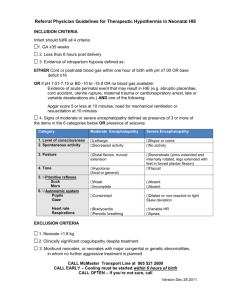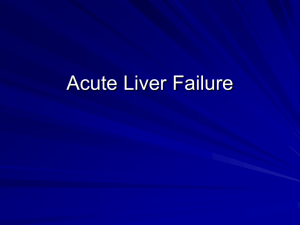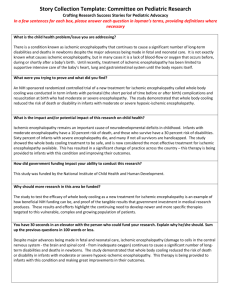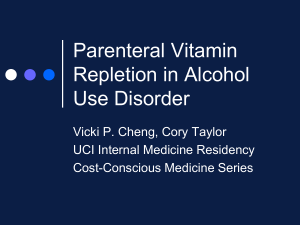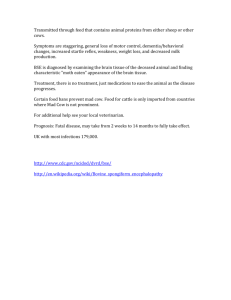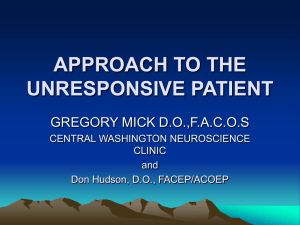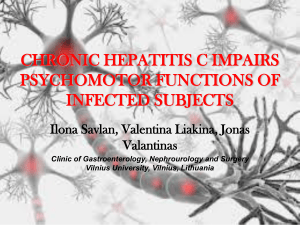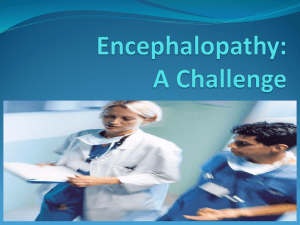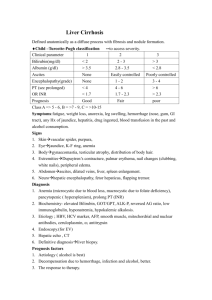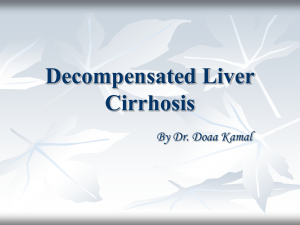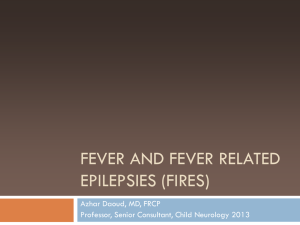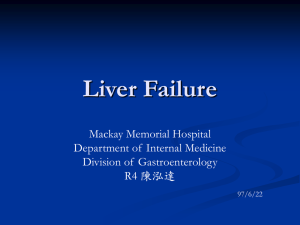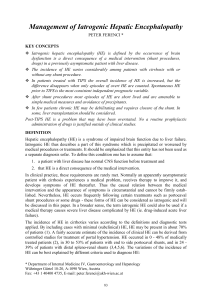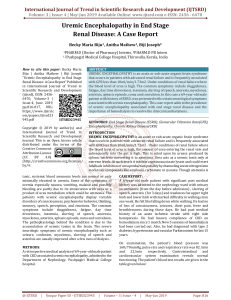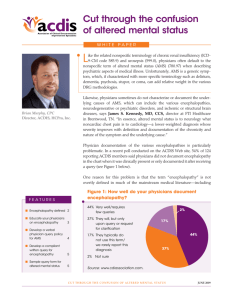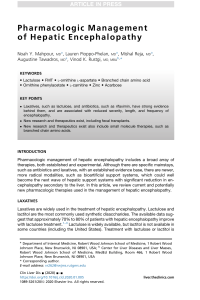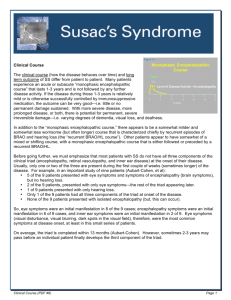Information Leaflet
advertisement
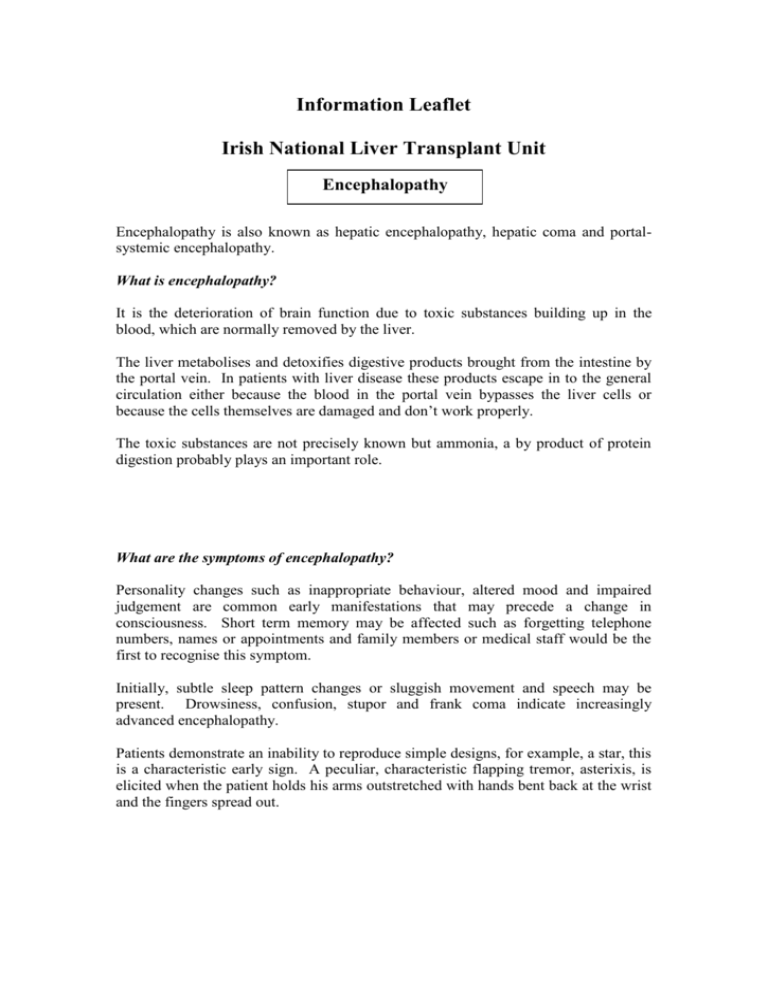
Information Leaflet Irish National Liver Transplant Unit Encephalopathy Encephalopathy is also known as hepatic encephalopathy, hepatic coma and portalsystemic encephalopathy. What is encephalopathy? It is the deterioration of brain function due to toxic substances building up in the blood, which are normally removed by the liver. The liver metabolises and detoxifies digestive products brought from the intestine by the portal vein. In patients with liver disease these products escape in to the general circulation either because the blood in the portal vein bypasses the liver cells or because the cells themselves are damaged and don’t work properly. The toxic substances are not precisely known but ammonia, a by product of protein digestion probably plays an important role. What are the symptoms of encephalopathy? Personality changes such as inappropriate behaviour, altered mood and impaired judgement are common early manifestations that may precede a change in consciousness. Short term memory may be affected such as forgetting telephone numbers, names or appointments and family members or medical staff would be the first to recognise this symptom. Initially, subtle sleep pattern changes or sluggish movement and speech may be present. Drowsiness, confusion, stupor and frank coma indicate increasingly advanced encephalopathy. Patients demonstrate an inability to reproduce simple designs, for example, a star, this is a characteristic early sign. A peculiar, characteristic flapping tremor, asterixis, is elicited when the patient holds his arms outstretched with hands bent back at the wrist and the fingers spread out. What factors can cause encephalopathy and how are they treated? Constipation can cause encephalopathy. If waste products/toxins are held in the bowel for a prolonged period of time, reabsorption of toxins occurs which may increase the incidence of encephalopathy. Main therapy is with oral Lactulose which is normally given to prevent constipation in an initial dose of 20-30mls three times a day and should be adjusted to maintain two or three soft bowel motions daily. Infection may also cause a similar rise in toxins and precipitate an encephalopathic event. Infection should be treated promptly with an appropriate antibiotic. This may require admission to hospital for intravenous antibiotics. In some patients with chronic encephalopathy it may be necessary for them to take an antibiotic on a regular basis. Haemorrhage can also cause an increase in toxins as the blood is being digested. Vomiting blood or passing black tarry stools is an emergency situation and should be treated in your nearest Accident and Emergency Department. What are the different grades of encephalopathy and what are the specific symptoms? Grade 1: Grade 2: Grade 3: Grade 4: Confused. Altered mood or behaviour. Loss of memory for simple facts. Slowness of thought process. Increasing drowsiness. Inappropriate behaviour. Stuporous but speaking and may/may not obey simple commands. Inarticulate speech. Marked confusion. Restless. Agitated. Aggressive. Coma. Once the precipitating factor has been identified and treated the encephalopathic episode generally resolves. If the encephalopathy becomes severe and results in coma the patient will require ventilation in an Intensive Care Unit. This means that they will be placed on a breathing machine to assist their breathing and to protect their airway. Again, once the cause has been identified and treated this situation can generally be reversed. Sedation should be avoided in patients experiencing episodes of encephalopathy. Patients experiencing encephalopathy should avoid driving, operating machinery, working with dangerous instruments or working at heights/on ladders as these activities may pose a danger to themselves or others. Patients experiencing encephalopathy are generally unaware of their confused state and therefore are not always co-operative with family members or carers. Encephalopathy may be an unpleasant experience for both the family and the patient.
